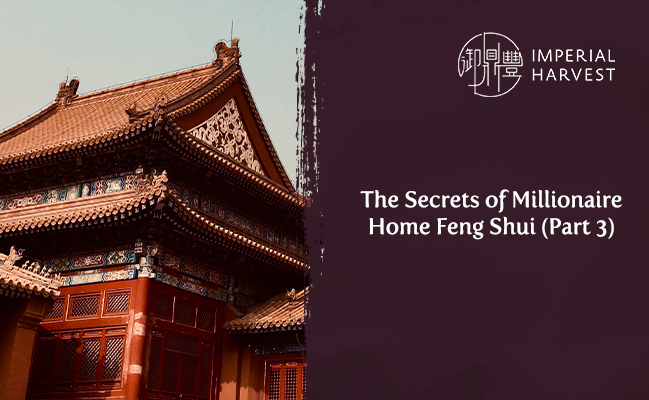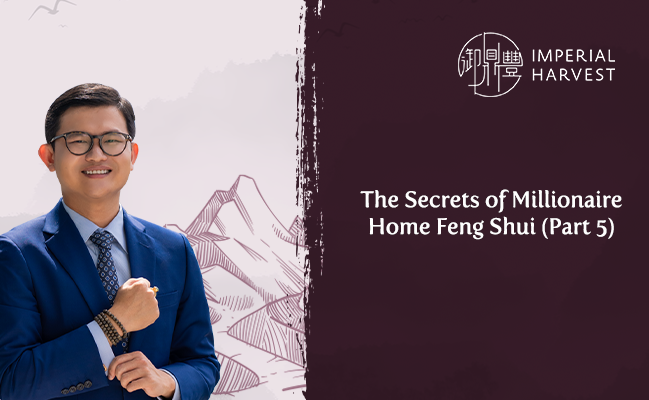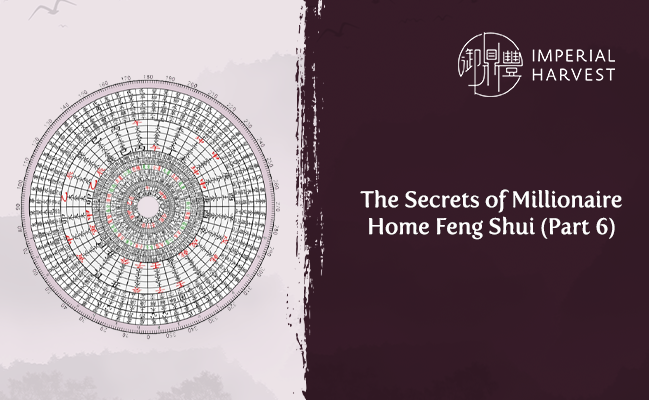

Posted by Imperial Harvest on 31 May 2019
The Secrets of Millionaire Home Feng Shui (Part 4)
Estimated Reading Time: 4 mins
The wealth sector or wealth corner is the area in your home or office that can help enhance prosperity when activated. It’s considered to be the corner of the house which has the energy to attract wealth flow and represents the amount of money you’re able to retain and accumulate.
In this article, we’ll be exploring the two methods used in classical Feng Shui to identify wealth sectors.
The first method is known as the “45 Degree Corner”. It’s a simple and generalised method which does not require any extensive calculations or even the analysis of your home floor plan.
How do we identify the wealth sector?
To identify the wealth sector using the “45 Degree Corner” method, we need to look for the longest visible corner from the entrance of the house. This wealth corner would be 45 degrees diagonally left from the entrance of the house.
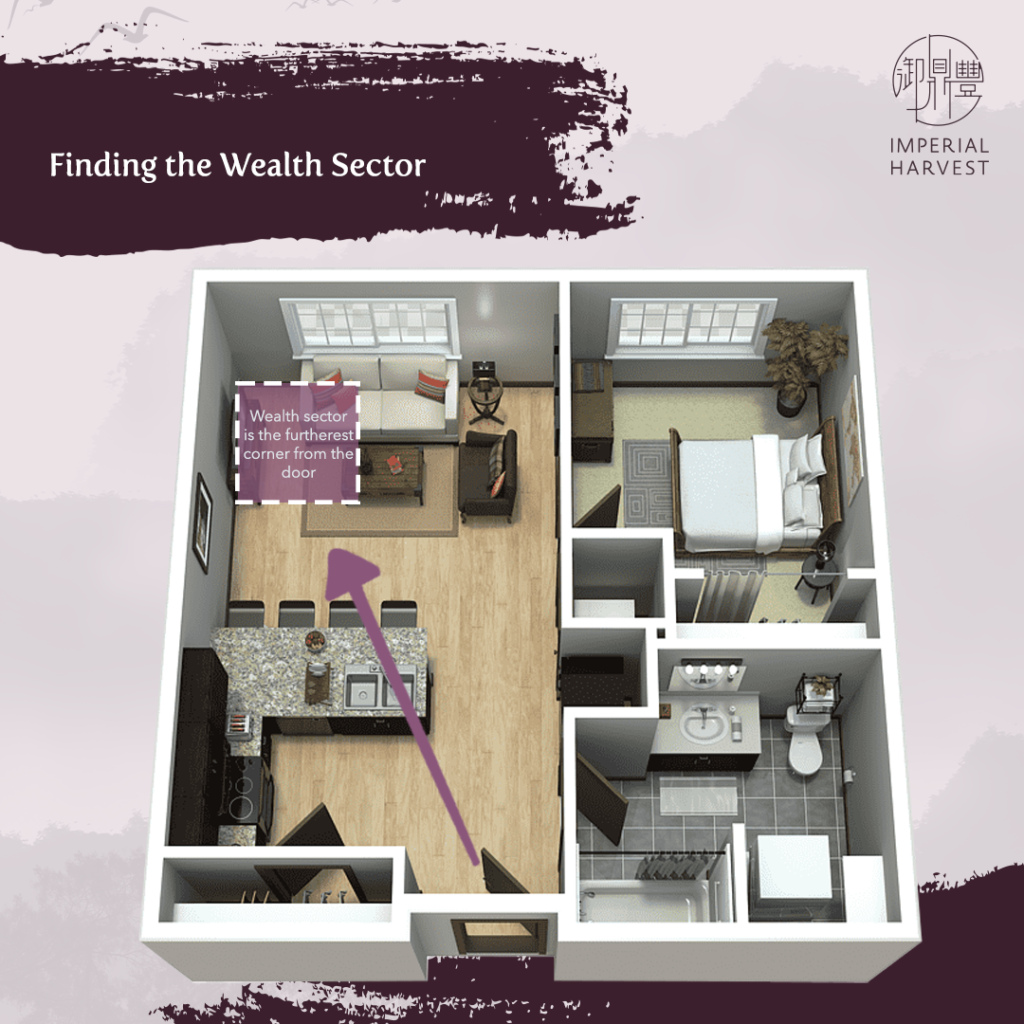
Finding out the Wealth Sector of the house using the Purple White methodology
The second method is known as the ‘Purple White methodology’, where the Xuan Kong 8 Mansions formula is used.
The steps to finding the wealth sector are as follows:
- Find the facing and sitting direction of the house
- Using the facing direction, find out which of the eight mansions the house belongs to
- Superimpose that mansions diagram onto the floor plan
- Look for the death sector
Different houses have different facing and sitting directions, to simplify things, we have created a guide below to help you locate the facing direction of your property:
Facing and sitting directions for HDB apartments
1. HDB apartments with a staircase in the middle – For HDB apartments with main doors facing each other and a staircase in the middle, the facing direction of the house would be the main window.
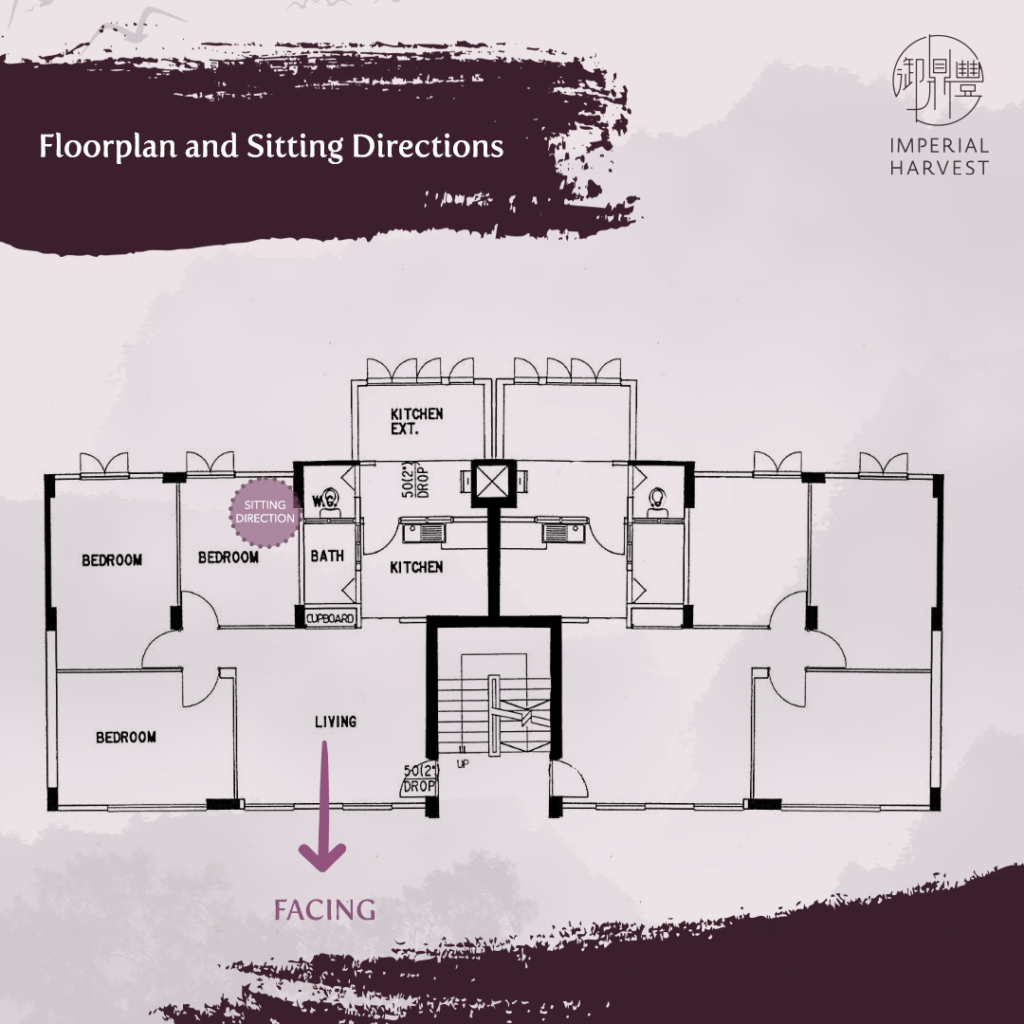
2. Corridor HDB apartment – For HDB apartments that have a long corridor, the facing direction of the house will be the main door.
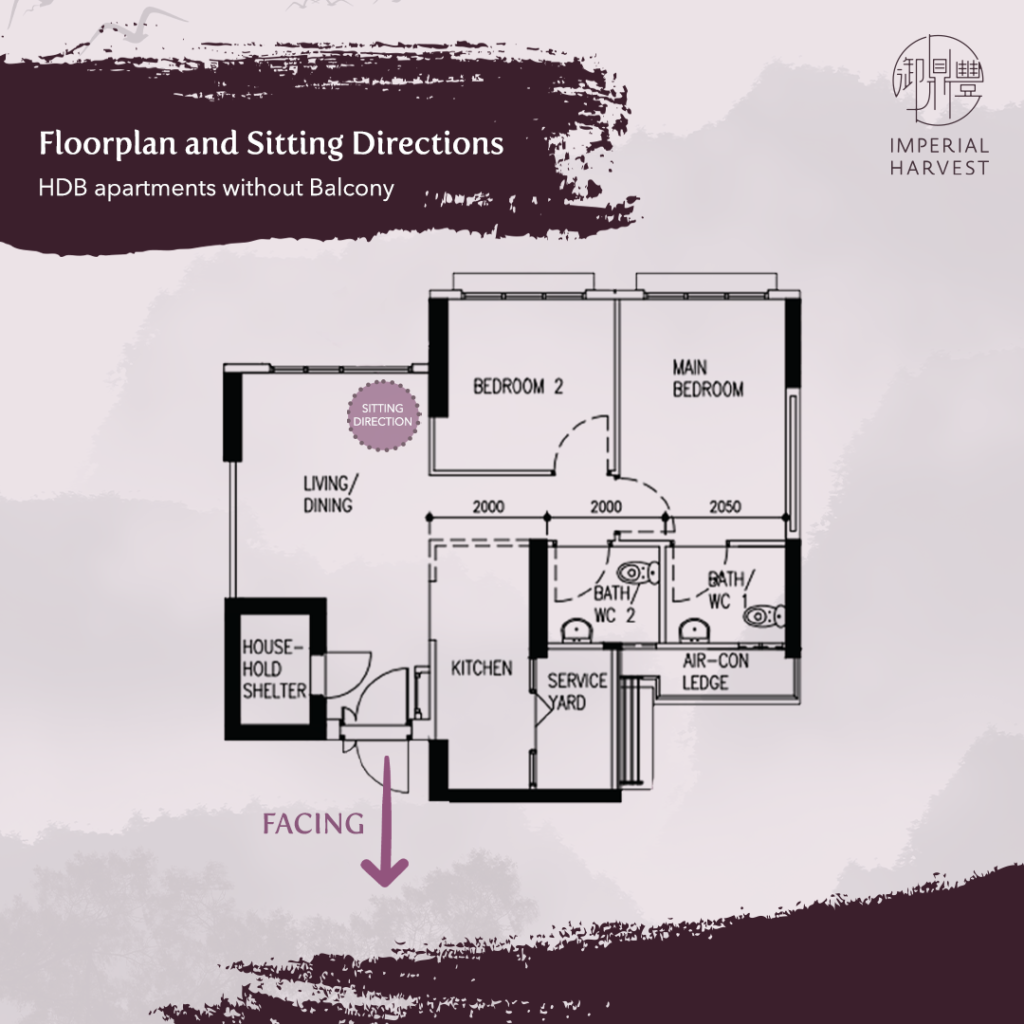
3. HDB Apartments with a balcony – The facing direction of the house will be the balcony.
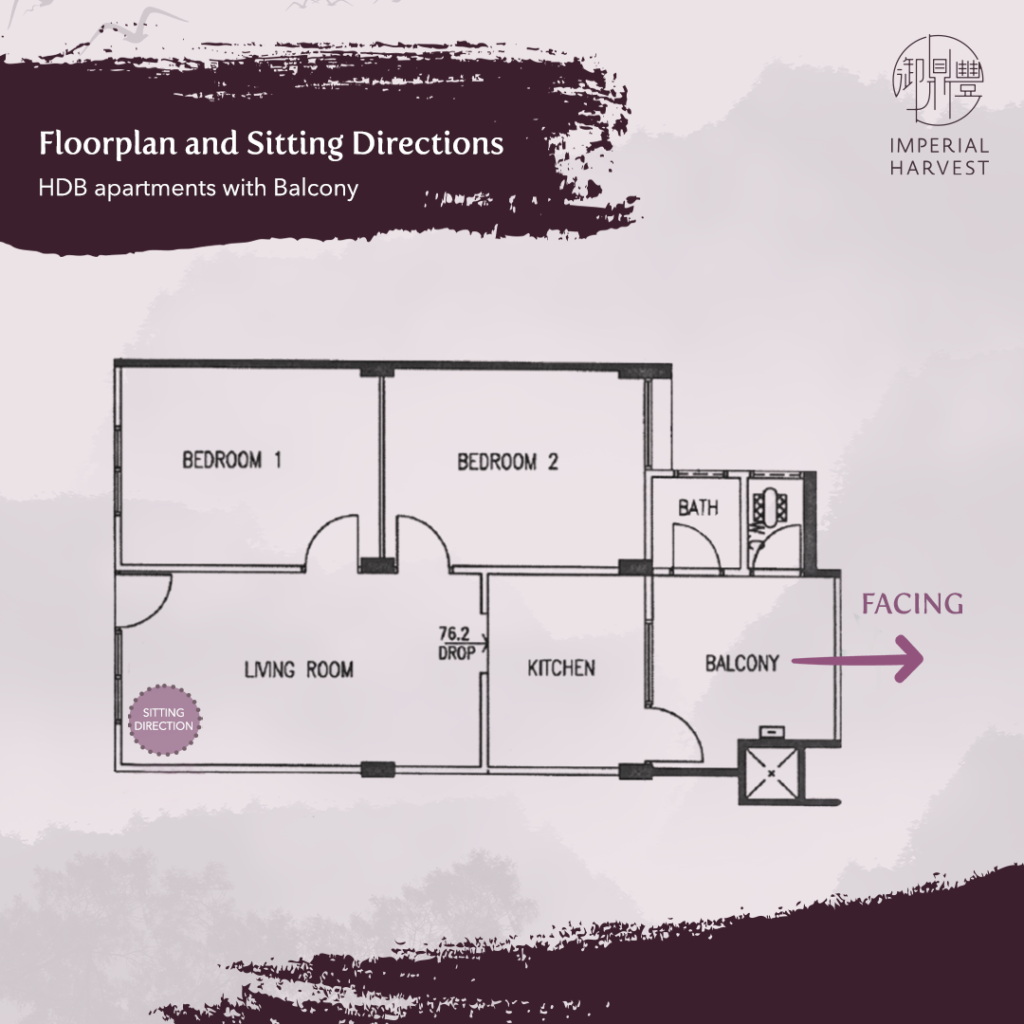
Facing and Sitting directions for Condominium
1. Condominiums with balcony- The facing direction of the house will be the balcony.
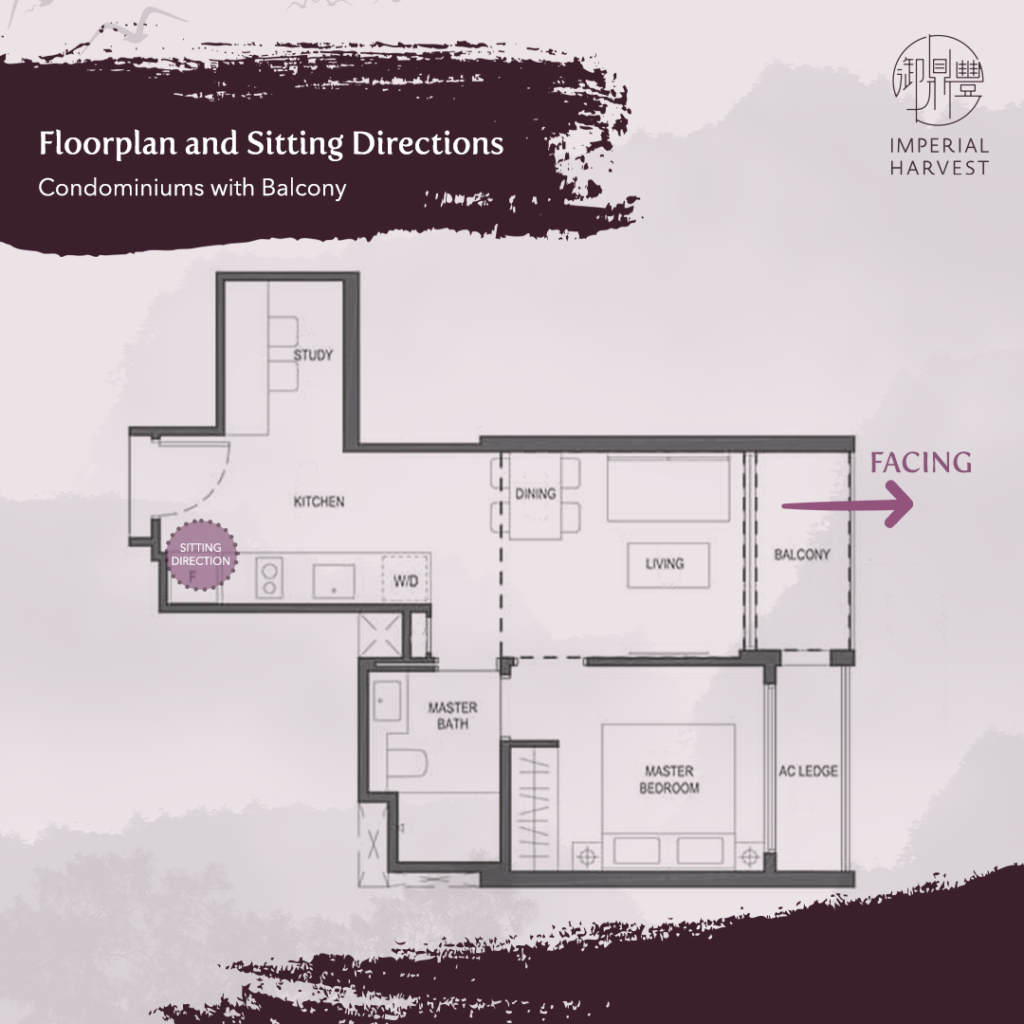
2. Condominiums without balcony – The facing direction is the main window in the living room.
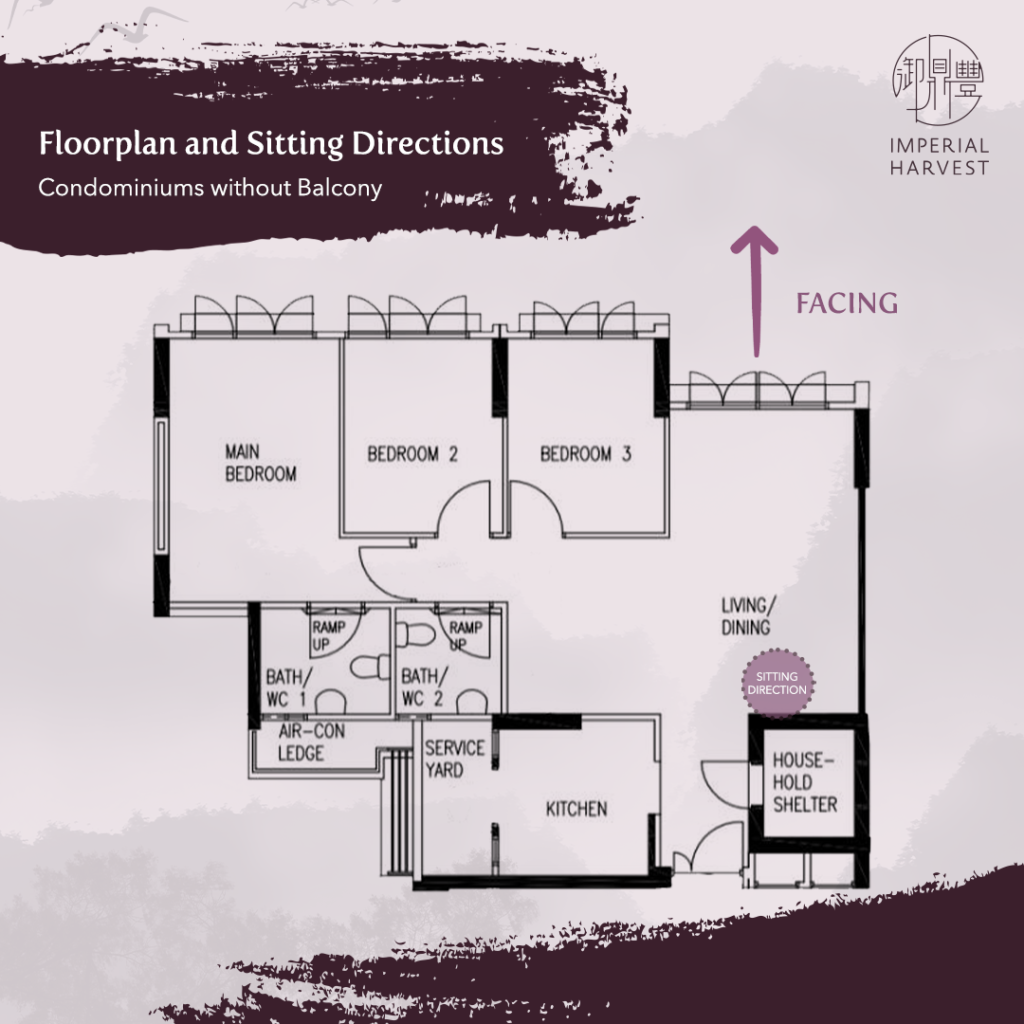
Landed Property
For landed properties, the main entrance/driveway will be considered as the facing direction of the house.
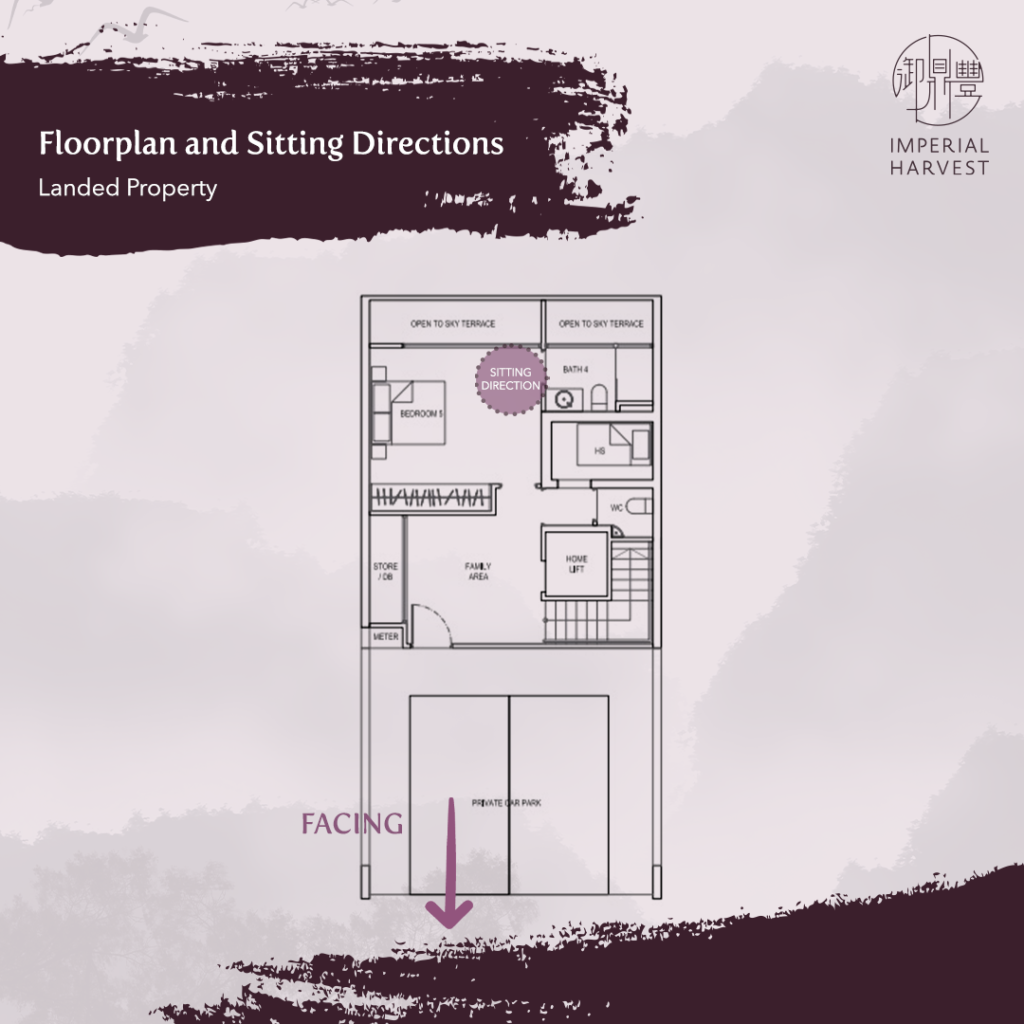
After finding the facing and sitting directions, we need to look into the Xuan Kong 8 Mansions formula and how the numbers on it interact with each other based on the production cycle.
What are the Xuan Kong 8 Mansions?
The Xuan Kong 8 Mansions are derived from the eight trigrams of classical Feng Shui. Each trigram has its own attributes such as heaven and earth and a unique number assigned to it. At the same time, it represents a kinship – mother, father and son.
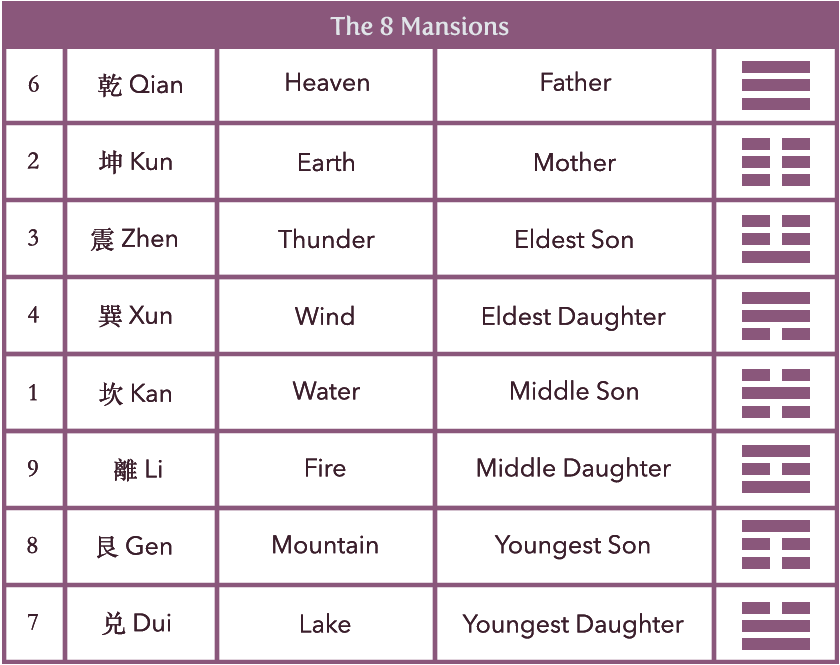
The following are the diagrams of the 8 Mansions –
1. Kun House -South West Facing
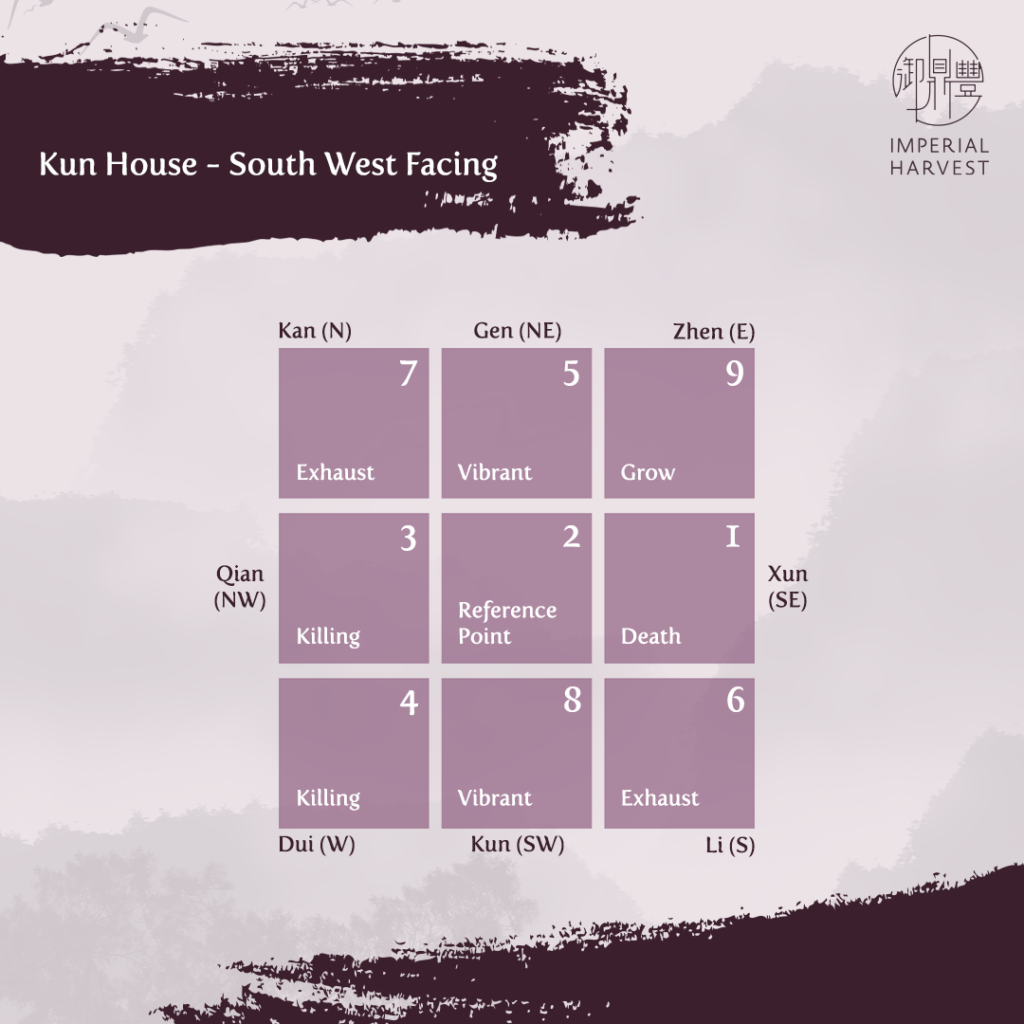
2. Kan House – North Facing
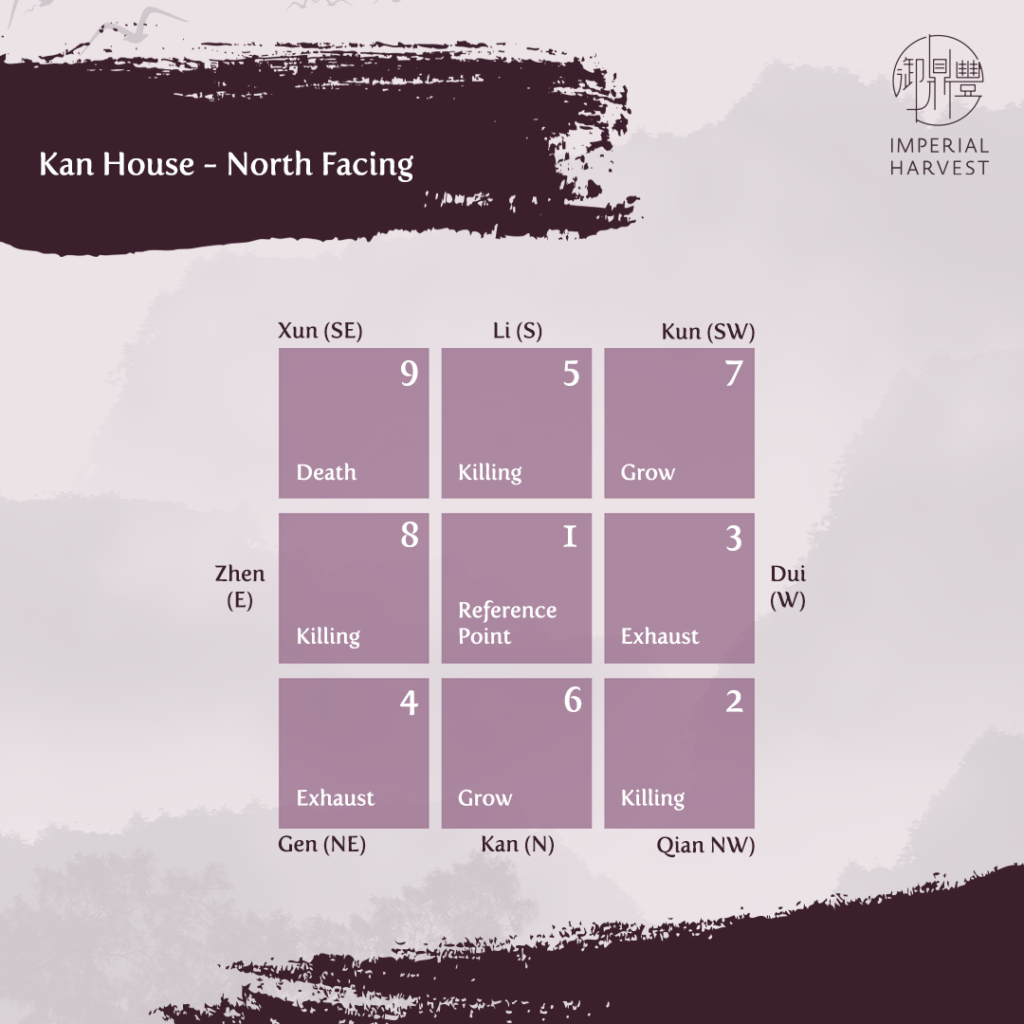
3. Zhen House – East facing
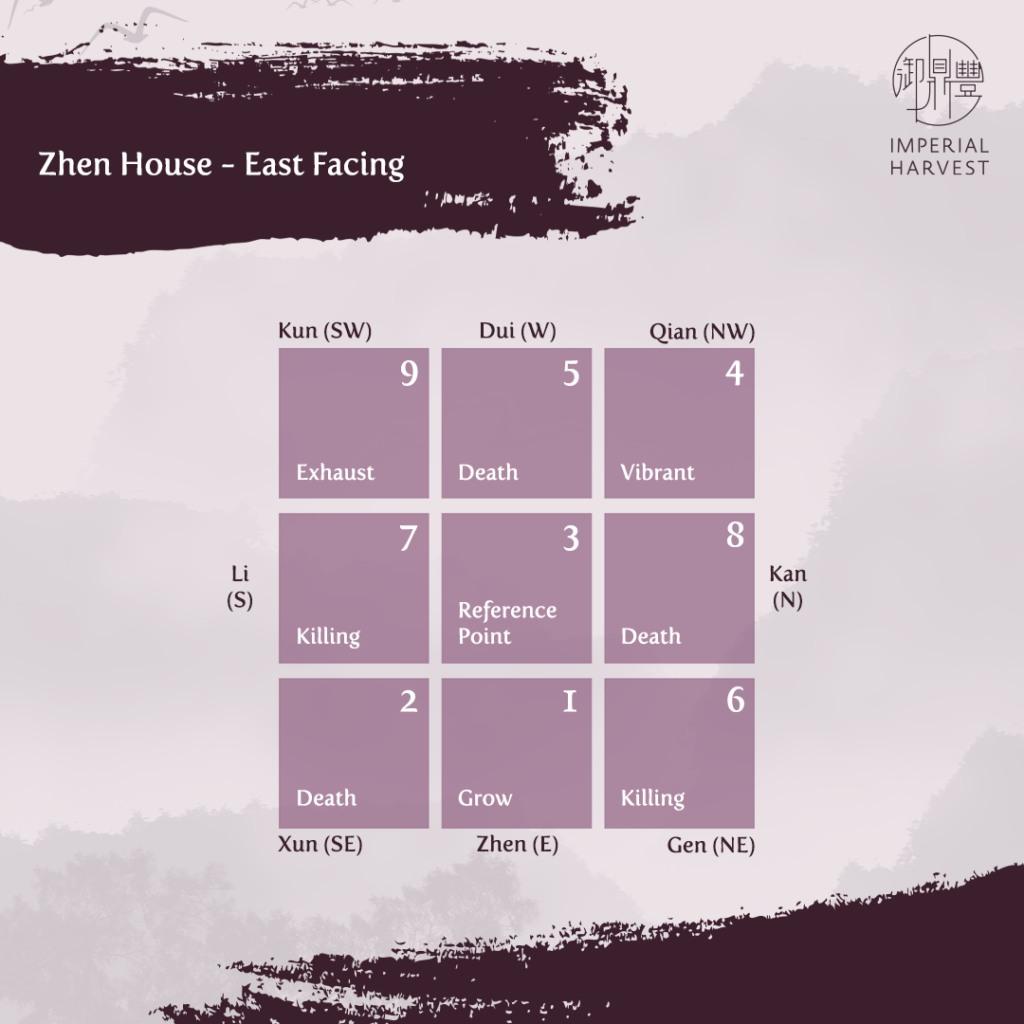
4. Xun House – South East facing
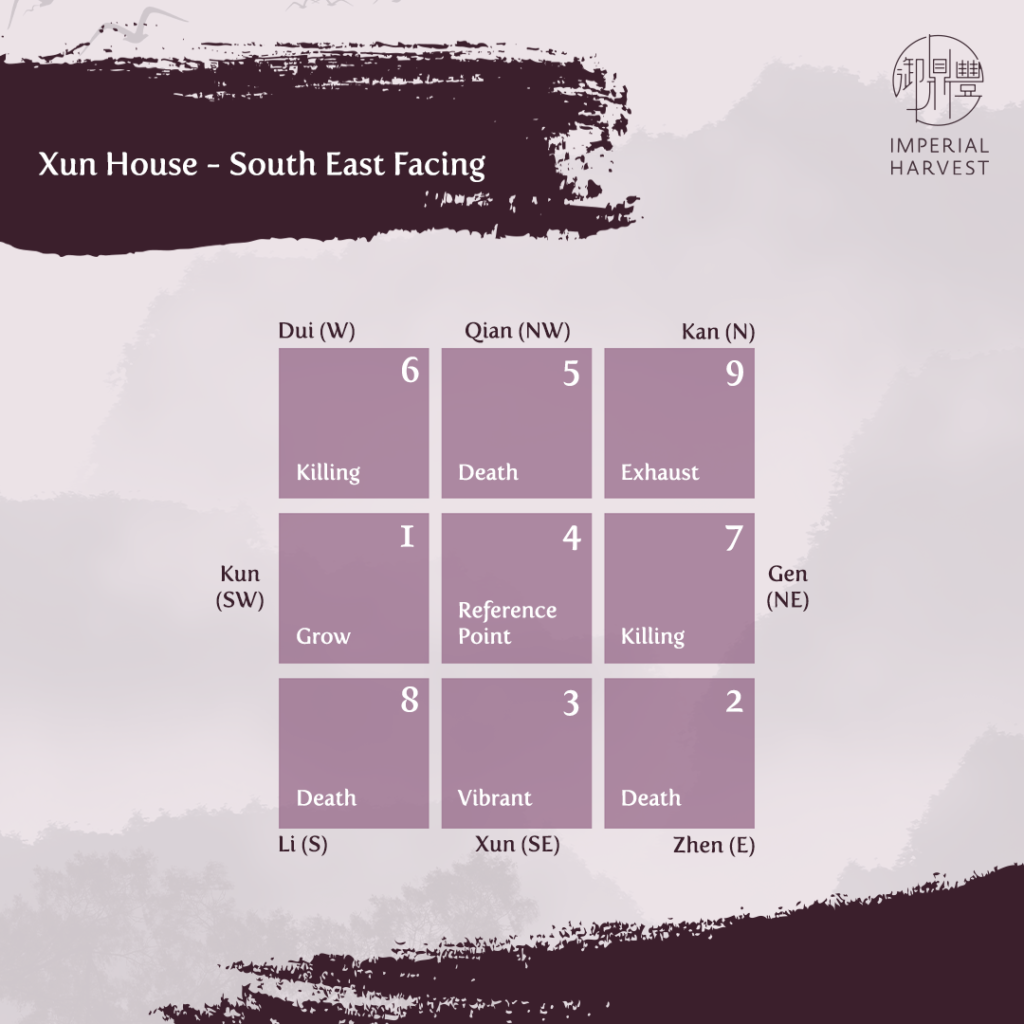
5. Qian House – North West facing
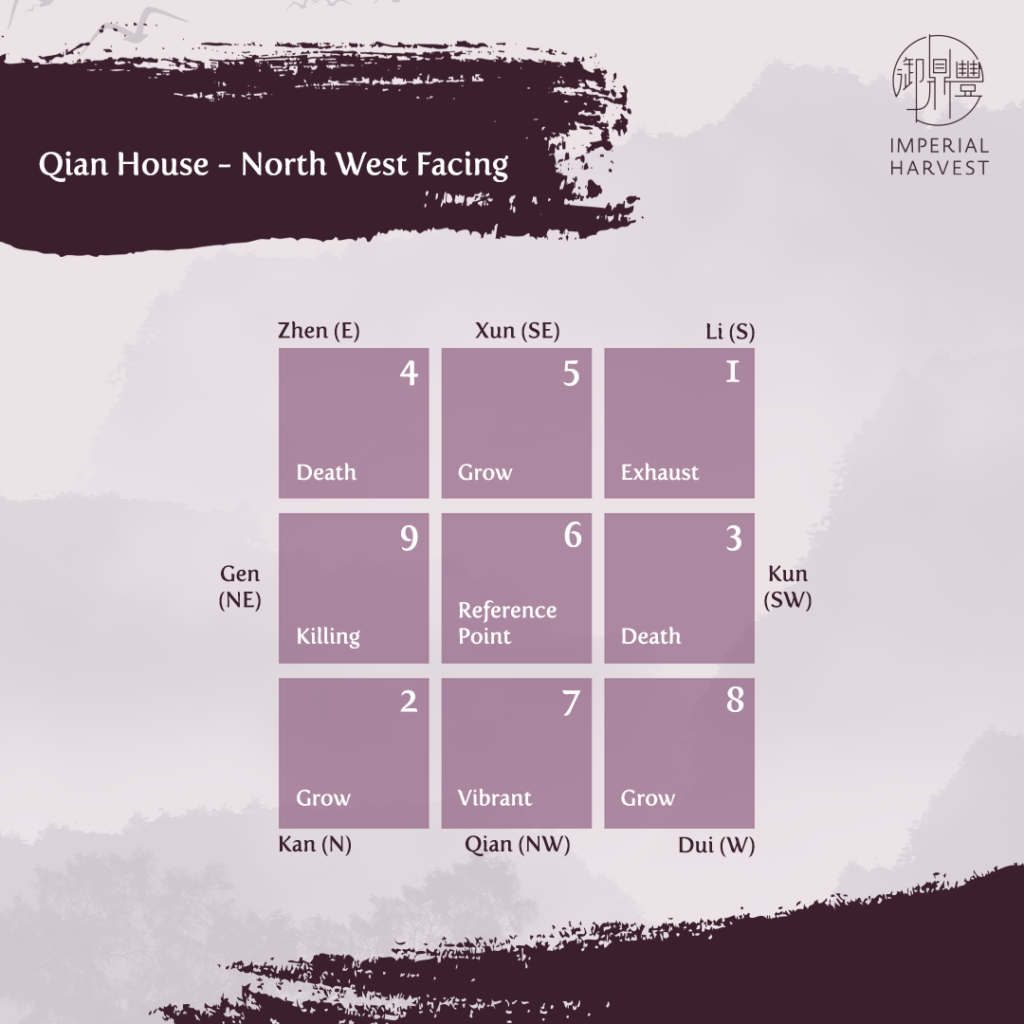
6. Dui House – West facing
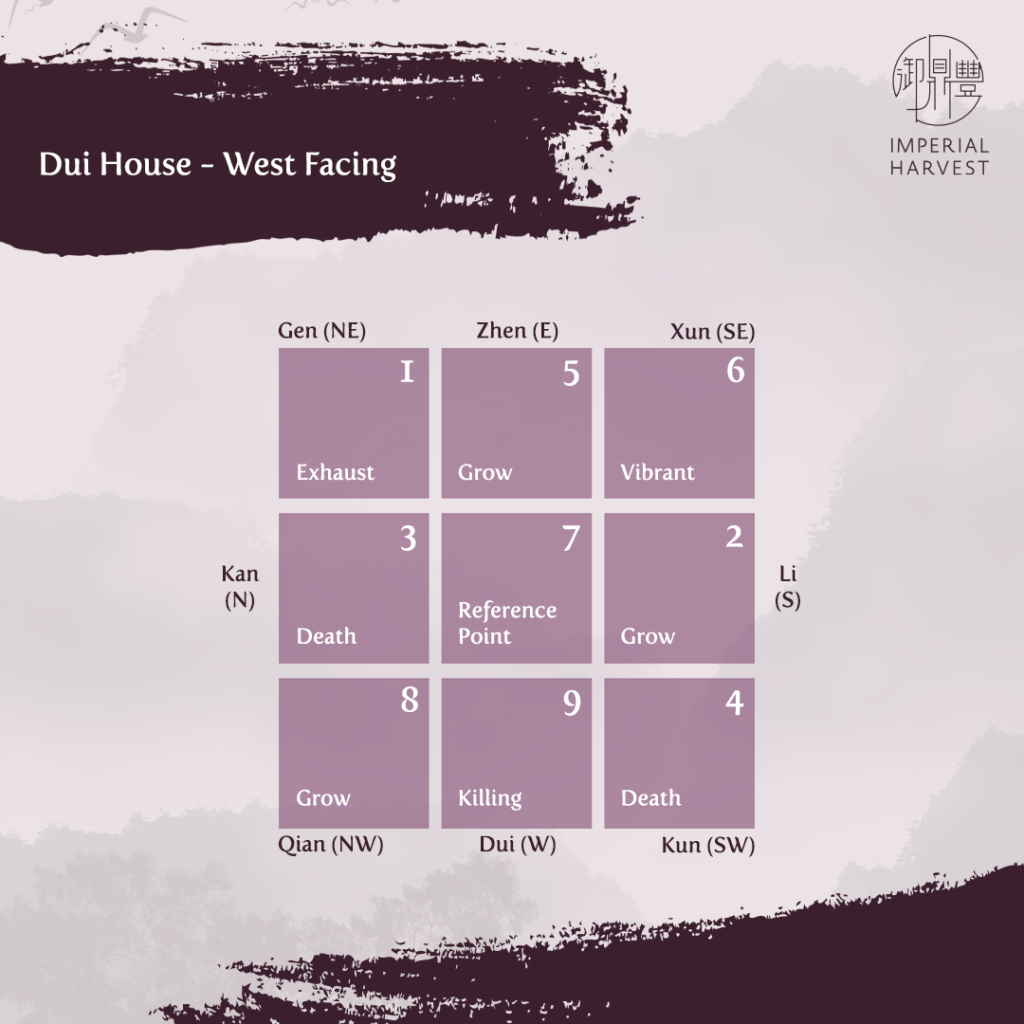
7. Gen House – North East Facing
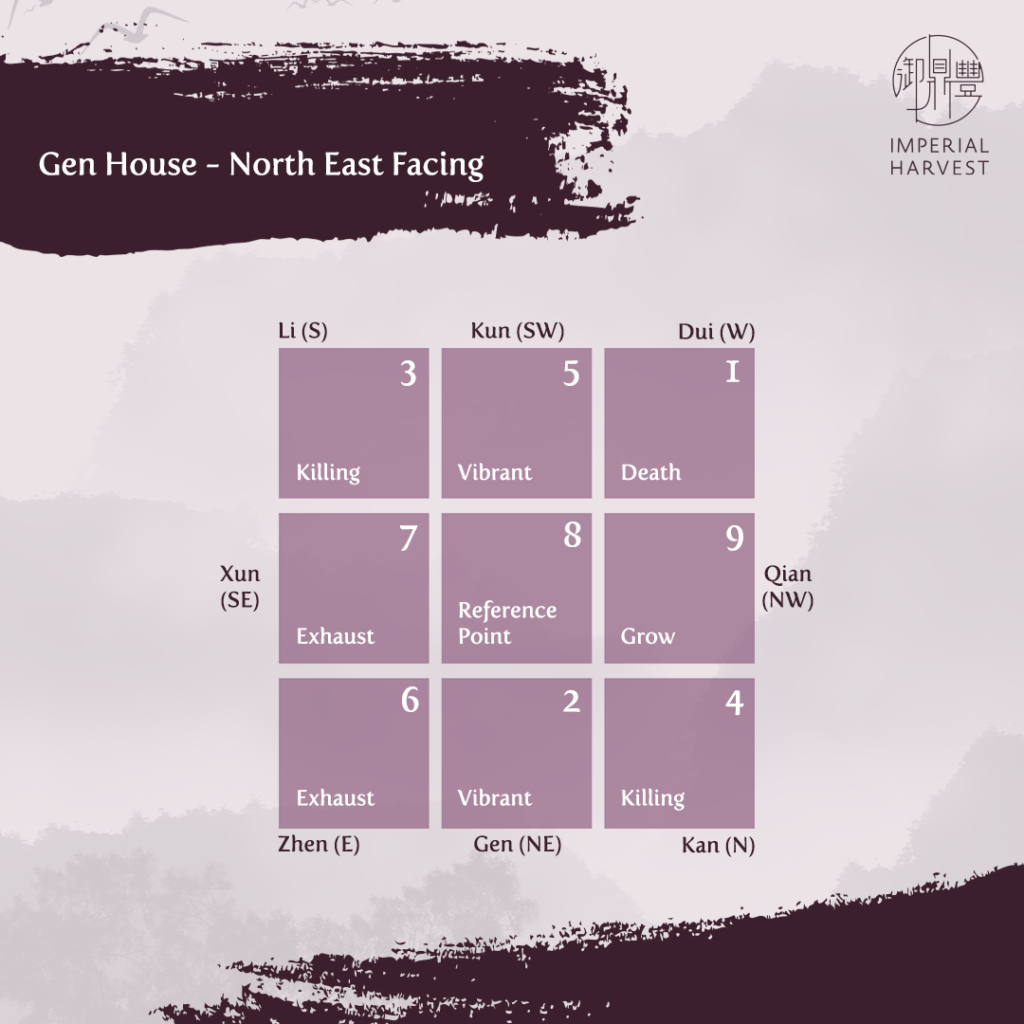
8. Li House – South facing
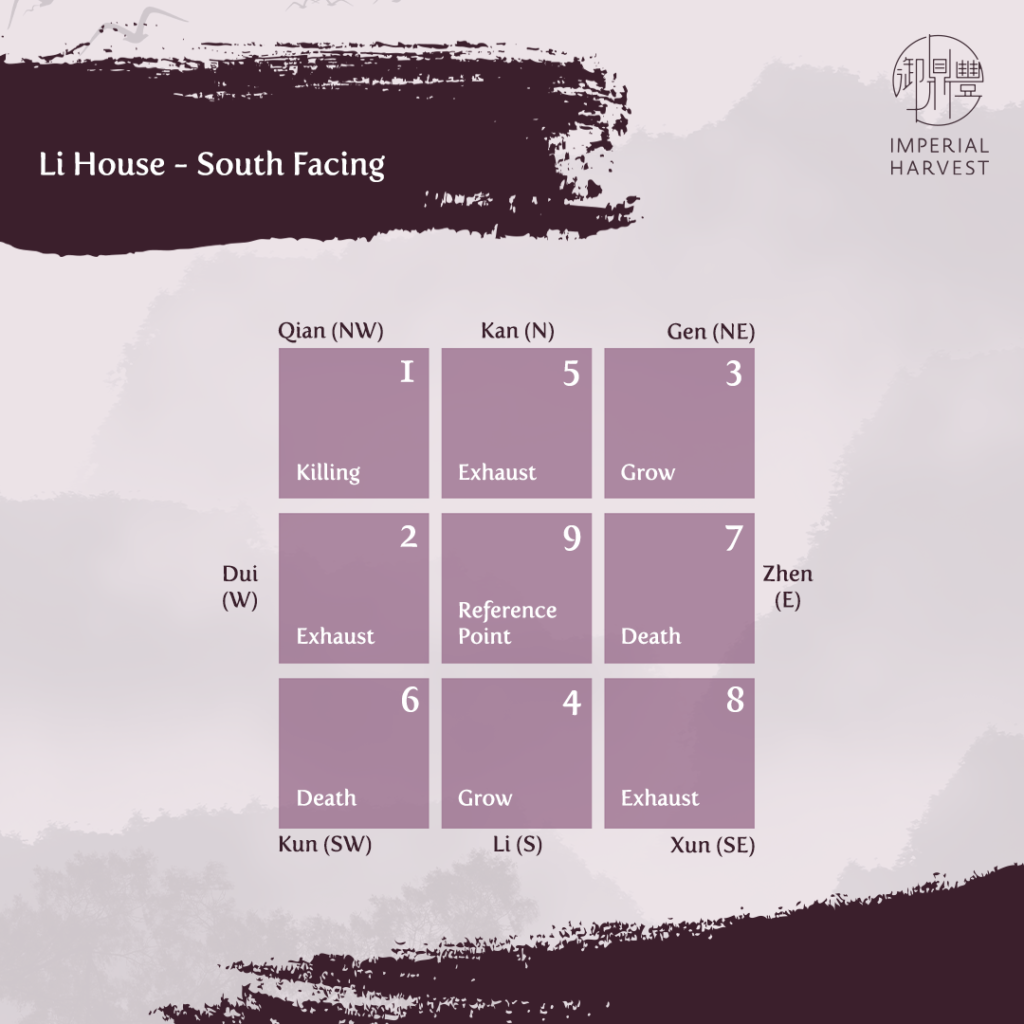
What is the production cycle?
The production cycle originates from the five elements – Fire, Earth, Metal, Water and Wood. Using the five elements, the production cycle has been created to find out the Qi of the house.
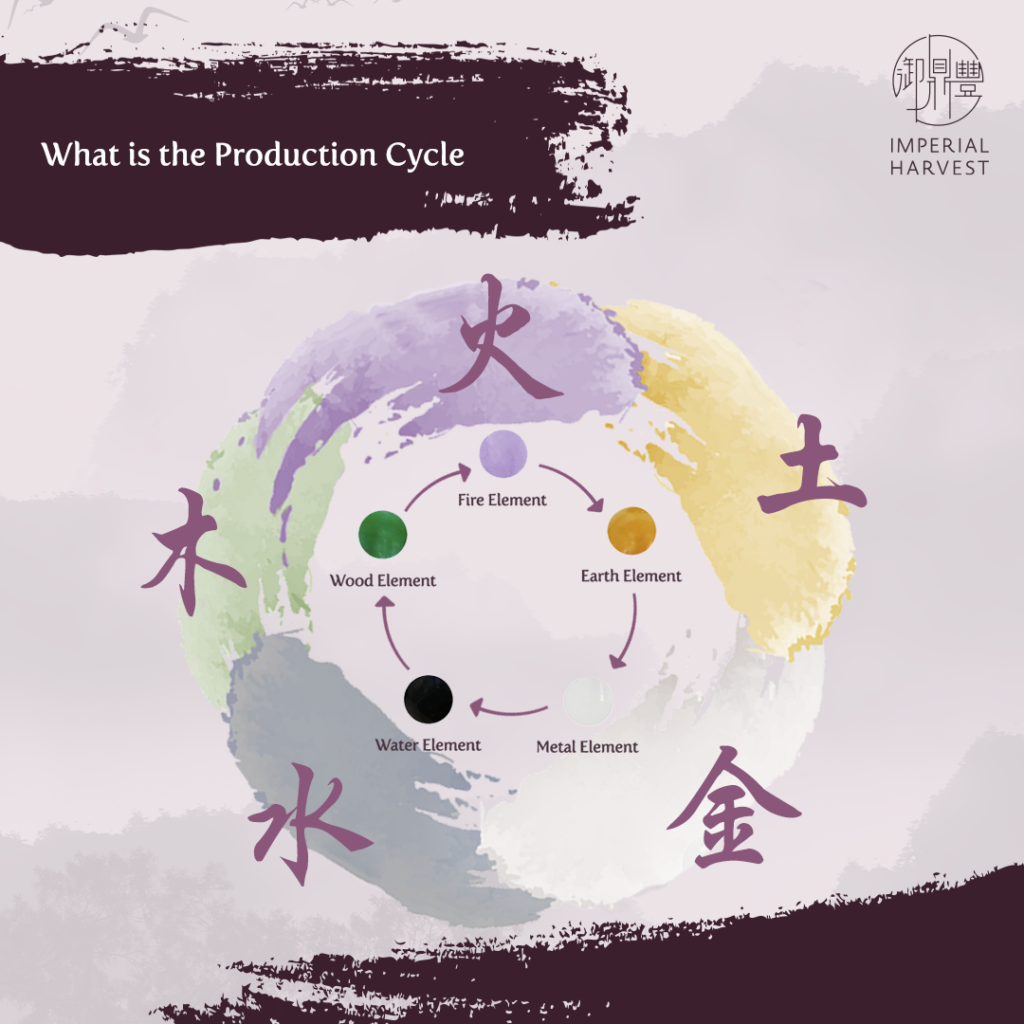
There are five types of Qi:
- Exhaust Qi as the output.
- Vibrant Qi is self.
- Grow Qi is resource.
- Death Qi is wealth
- Killing Qi is authority.
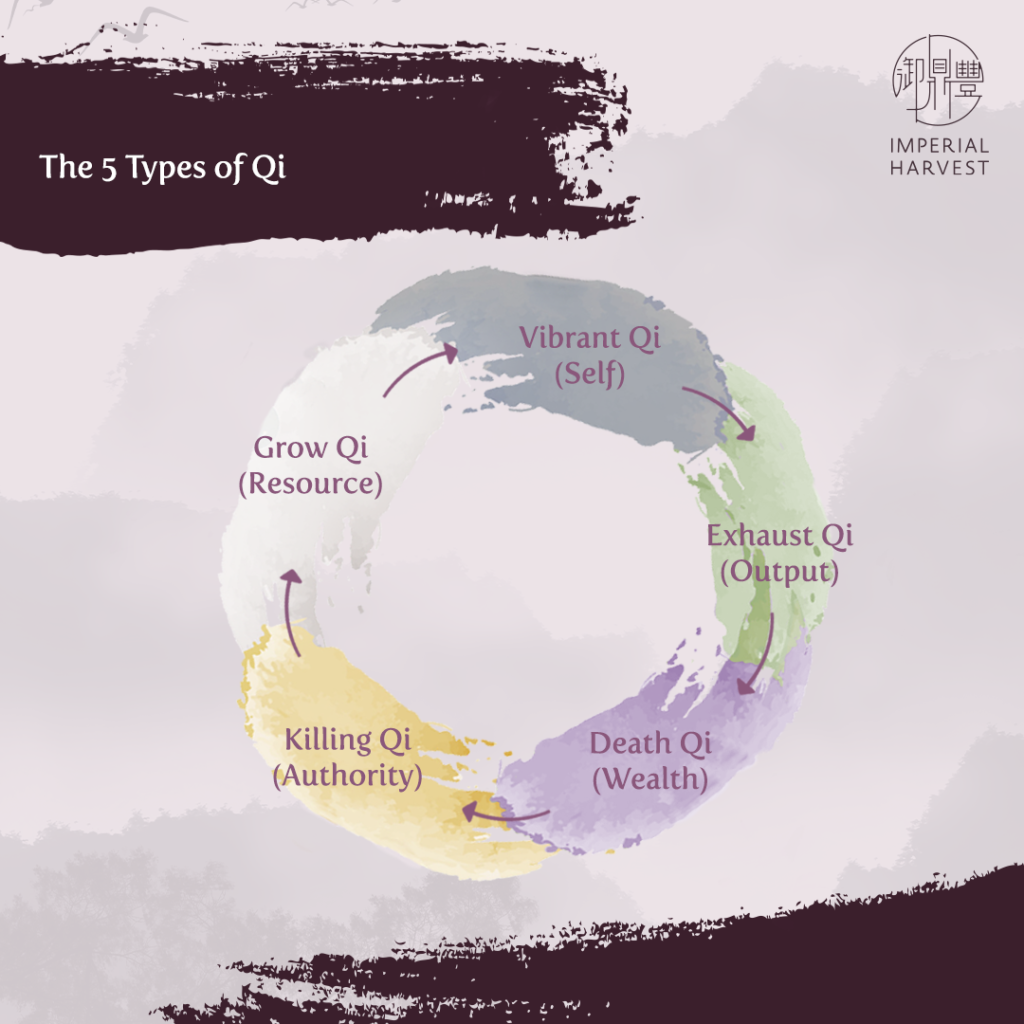
The interaction between the five elements and the five Qi’s is how the 8 Mansions are created. The points below explain how the interaction of the five elements creates the five types of Qi.
- Metal produces water making it the Vibrant Qi
- Water produces wood making – Exhaust Qi
- Wood produces Fire – Death Qi
- Fire produces Earth – Killing Qi
- Earth Produces Metal – Grow Qi
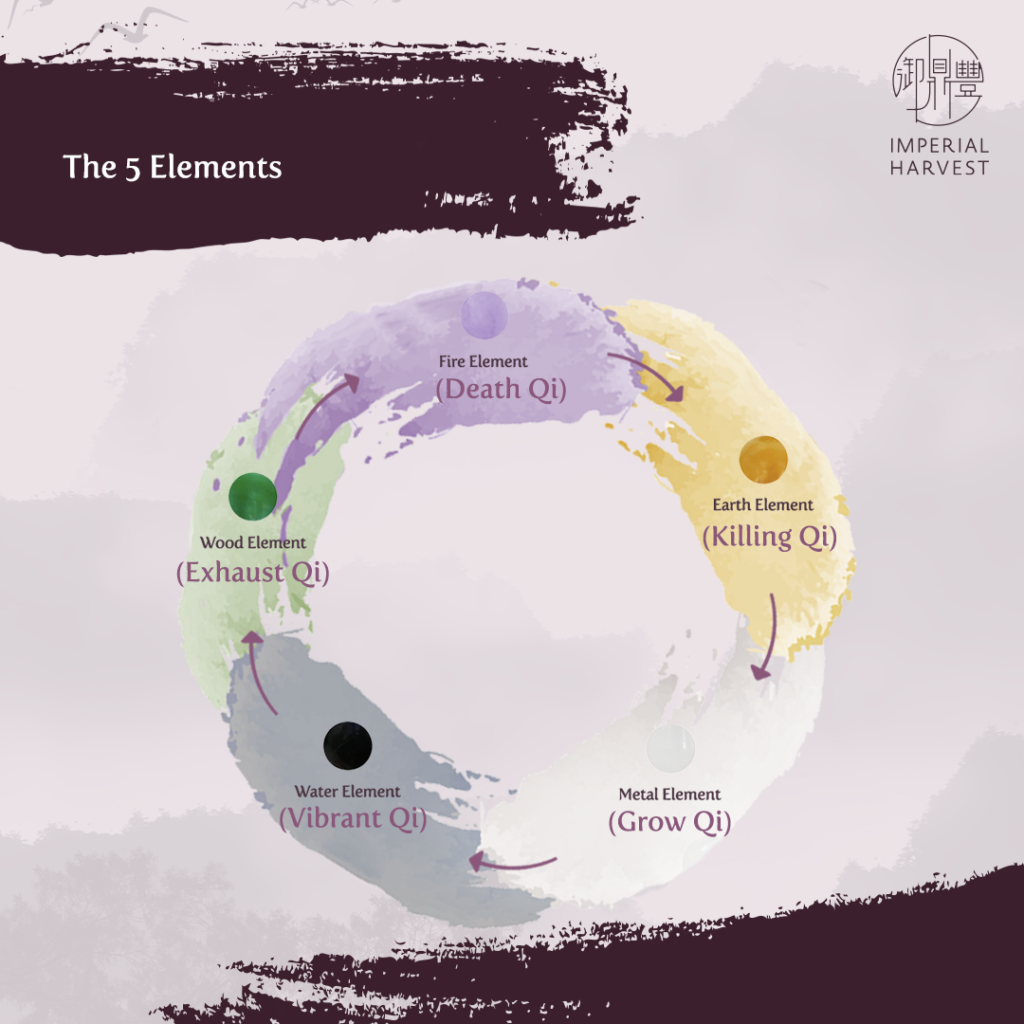
Illustration: using the Kan House as a reference

Since “Kan” represents the middle son (as mentioned in the table above), taking one (1) as the reference point, it will be placed in the middle followed by the rest of the numbers surrounding it. The rest of the numbers are attained based on their interaction with the reference point using the production cycle. For example, on the right side of ‘One’ is 3, which represents the wood element. Since water produces wood, it becomes ‘exhaust’.
The final step is to find the facing direction of your house and superimpose the floor plan onto the type of mansion.
Upon doing so, you can look for the death sector on the mansions diagram, which will be the wealth sector of your house.
These are two of the most common classical Feng Shui methods to determine the wealth sector of a house. These methods are extremely generic and neglect the personal attributes of an individual. They fail to take the year of construction and birth charts (Bazi) of the occupants into consideration. Both are crucial components in the authentic practice of Feng Shui. As such, classical Feng Shui assessment is presumptuous and inaccurate.
At Imperial Harvest, Master David leverages his three generations of Imperial Feng Shui expertise. Many clients benefited from his time-tested and proven Imperial Feng Shui approach. For centuries, Imperial Feng Shui was favoured by royalties over other impractical Feng Shui approaches. In the next article, we will be debunking the myth of activating wealth sectors using classical Feng Shui methods.
Your expert consultants are on hand to help you find the perfect Imperial Harvest treasure, book a complimentary consultation or contact us at +65 91221826.
We are located at
For prospective clients:
Imperial Harvest
402 Orchard Road
Delfi Orchard #02-07/08
Singapore 238876
For existing clients:
Imperial Harvest Prestige
402 Orchard Road
Delfi Orchard #03-24/25
Singapore 238876
Most Read Articles
Get to read our life changing articles and get inspired.
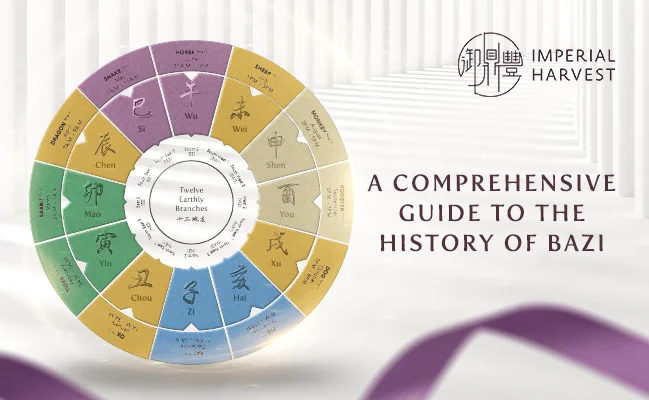
A Comprehensive Guide to the History of Bazi (八字)
Estimated Reading Time: 5 mins Bazi (八字) is often mistakenly assumed as the Chinese counterpart of western Astrology. The similarities between both systems lie in their utilisation of birth dates and time in their calculations, and the ability to be read from a tabulated chart. Where Astrology may take into account the positions of different […]
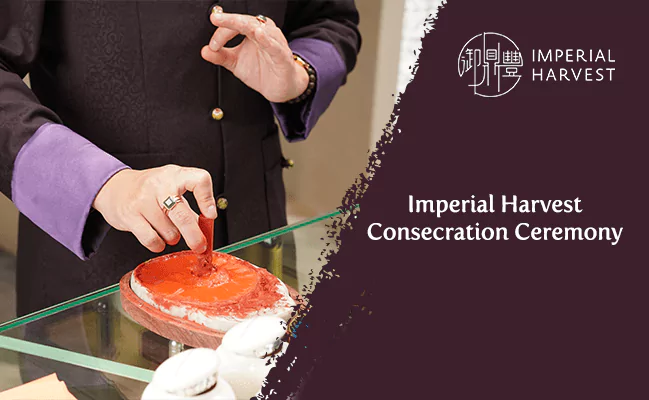
Imperial Harvest Consecration Ceremony
Estimated Reading Time: 5 mins At Imperial Harvest, each earthly treasure undergoes a series of consecration rites performed by Master David, before it is bestowed upon its blessed owner. Every aspect of these sacred Chinese anointing rituals is carefully examined and accurately represented in Master David’s blessings, reflecting Imperial Harvest’s deep respect for these esteemed […]
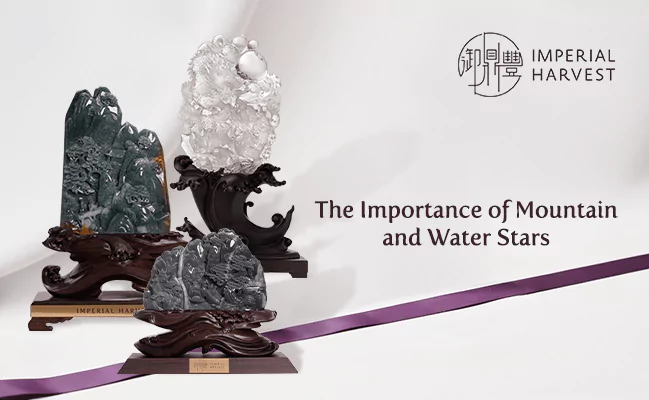
The Importance of Mountain and Water Stars
Estimated Reading Time: 4 mins “山管人丁,水管财”, is a well-cited principle in the study of Imperial Feng Shui that translates to “Mountains govern benefactors, authority and harmony, while Water governs wealth, opportunities and intuition”. This principle reiterates a critical factor in Imperial Feng Shui — balance is the key to achieving success in life. As mountain […]
